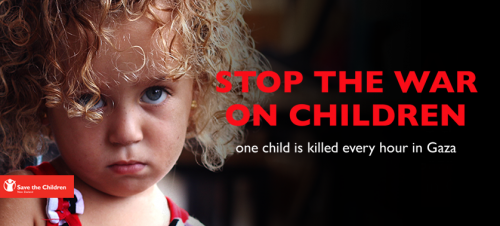
https://www.savethechildren.org/us/about-us/media-and-news/2019-press-re...
FAIRFIELD, Conn. (Feb. 14, 2019)—More children are living in areas affected by armed conflict and war than at any time in more than 20 years, according to a new report published by Save the Children. Stop the War on Children: Protecting Children in 21st Century Conflict reveals that 420 million children—nearly one in five—were living in conflict-affected areas in 2017, up 30 million from the previous year.
The research, carried out by the Peace Research Institute Oslo and commissioned by Save the Children, is launching ahead of this weekend’s Munich Security Conference in Germany. Now in its second year, the report includes the most comprehensive collection of data on the number of children living in conflict-affected areas.
This year’s report finds that Afghanistan, Yemen, South Sudan, the Central African Republic, the Democratic Republic of Congo (DRC), Syria, Iraq, Mali, Nigeria and Somalia are the ten countries where children were hardest hit by conflict in 2017.
One reason for the increased number of children living in conflict-affected areas is that today’s conflicts are more likely to be protracted, urban and fought among civilian populations. Increasingly, international rules and norms are flouted.
“Our report shows that a record number of children are being affected by conflict and that the way today’s wars are fought is causing even more suffering for children,” said Carolyn Miles, President & CEO of Save the Children.
“Our analysis clearly shows the situation is getting worse for children and the world is allowing this travesty to happen. Every day, children come under attack because armed groups and military forces disregard international laws and treaties. From the use of chemical weapons to rape as a weapon of war, war crimes are being committed with impunity.
“It is shocking that in the twenty-first century we are going backwards on principles and moral standards that are so simple – children and civilians should never be targeted.”
The Stop the War on Children report includes a breakdown of UN data on verified grave violations against children. According to these figures, grave violations rose worldwide from just under 10,000 in 2010 to more than 25,000 in 2017—the highest number on record. The UN’s six grave violations against children include: being killed, maimed, recruited by armed groups or abducted, sexual violence, attacks on schools and denial of humanitarian aid. In many cases, children are specifically targeted.
Save the Children’s report also highlights how efforts to avoid the use of certain weapons, seek accountability for crimes against children, keep schools safe, and pursue new ways to support children’s recovery from the horrors of conflict can make a huge difference in their lives.
The report includes more than 20 recommendations for governments and other influential agencies to ensure children are protected during war and conflict. Save the Children is also calling for an independent body to investigate and analyze all violations of international humanitarian law and of human rights, notably children’s rights.
Miles concluded: “When the rules of war are broken, the international community must be clear that this will not be tolerated and hold perpetrators to account. And for the children whose lives are wrecked by conflict, we must do all we can to protect them from further harm and help rebuild their futures.”
To learn more and to read the report, visit StopWaronChildren.org.










Add new comment